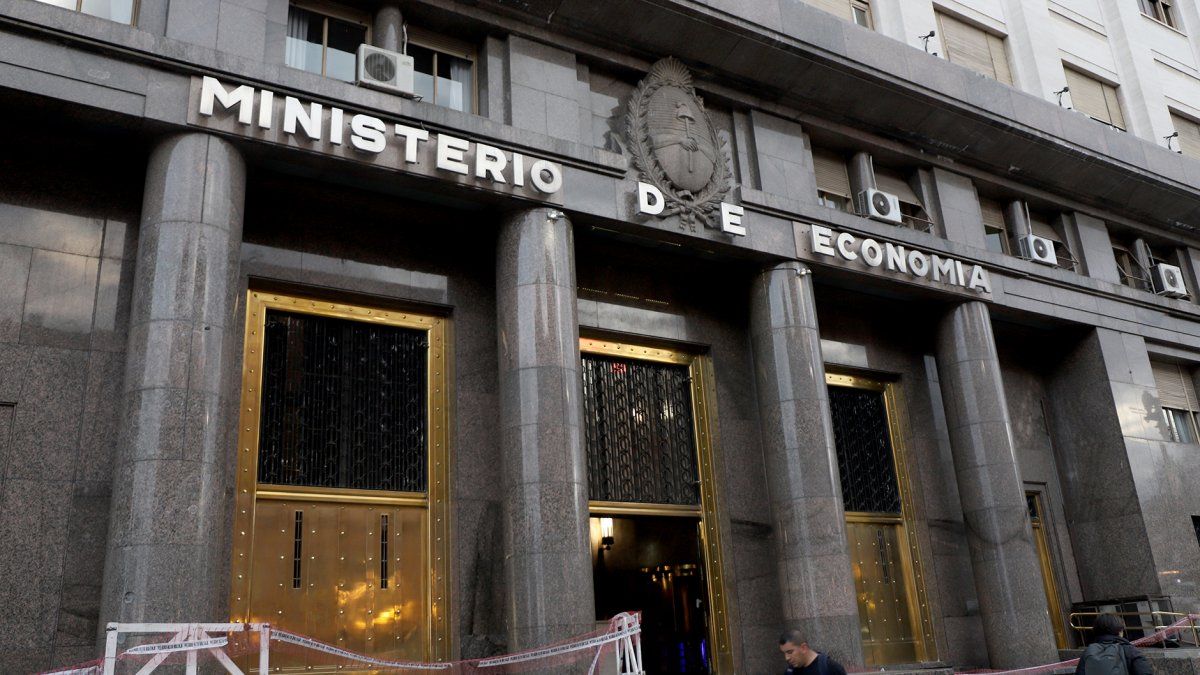The Ministry of Economy on track to achieve a new positive fiscal result in March, although it is expected to be less comfortable than what it has been able to obtain so far, since it has been achieved based on liquefaction of expenses and a brake on the payment of accrued commitments.
He primary cash surplus for the first three months is within the parameters agreed with the International Monetary Fund (IMF)above the $3 billion -already achieved between January and February-, but half of that would have been achieved by delaying payments.
According to data from the General Treasury of the Nation, in February the Government increased what is called floating debt by $900,421 million, and so accumulated a total of $1.61 billion. These are expenses that have already been generated, but not paid. One can take as an example the case of someone who consumed something and receives the bill, but does not pay it immediately.
Between the The most important payments postponed in February include $591,911 million that correspond to transfers, with a cumulative total of $884,783 million in the first two months. Must take into account that 2023 ended with a floating debt of $710,416 million.
floating-debt-february.png
Tax accounts: what happened in the first quarter
If data is taken from the page Open Budgetwhich reports data from the National Public Administration (APN) as of April 12, the difference between the accrued expense (that is, at the time it is generated) and the one paid this year was $743,844.
The first totaled $15.7 billion and the second $14.9 billion. Thus, it is likely that in the first quarter has decreased slightly the so-called floating debt of the national State.
The March fiscal surplus
According to the economist Carlos Melconian During an interview over the weekend, the Government applied so far a “chainsaw”, which means that, strictly speaking, he did little trimming, and much more liquefaction and enough procrastination.
In March the Executive registered a drop in tax revenues of around 16% in real termswhich has hardly been able to compensate for the drop in spending of around 40%.
It is likely that the Government has obtained a primary surplus less than the trillion that was achieved in February but there are doubts about the financial surplussince debt interest payments are the only spending component that registers real year-on-year growth.
Fiscal surplus: they trust the Government
According to It turned out, in the Casa Rosada they trust that in March they will be able to present a new positive result in fiscal terms that will thus be able to consolidate the situation for the rest of the year.
It must be taken into account that the fall of economic activity generates a decrease in tax collectionbut in the second semester, and specifically, in the next three months, with the liquidation of the harvest, income may be recovered via withholdings.
However, seasonally the second half of the year has a higher degree of budget execution and tends to be deficient.
With that data, The Minister of Economy, Luis Caputo, will go to the meeting of the International Monetary Fund (IMF) with the idea of exhibiting fiscal achievements and reducing inflation, in the expectation of achieving fresh funds.
On the other hand, Caputo gave start of the preparation of the 2025 Budget, with the aim of presenting it to Congress on September 15.
The most likely thing is that this project will have a zero deficit, at least, according to the ideological ideas of the president Javier Milei who questioned the deputies who in previous years approved income and expense guidelines with fiscal deficit.
Source: Ambito




